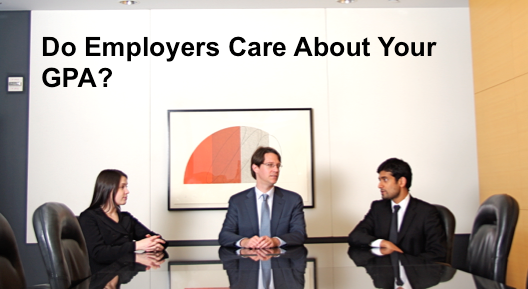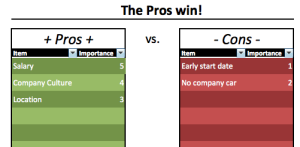Breaking news: Your career starts in college.
Are you surprised?
As a baby until arrived at college, your parents made the big decisions that guided your future.
Where you went to kindergarten, middle school, and high school were all decided for you. And many of the sports or activities you got involved in were chosen or influenced by other people, like your parents or friends.
But in college, you’re the big boy or girl who has to build your future. No one can, or should, tell you what career path is going to make you happy.
That’s a job 100% for you. And the quicker you realize your career starts in college, you’ll be more successful and have less regrets.
Here’s why.
High Stakes From The Beginning
The biggest mistake—one many freshman make—is choosing a major you feel ok about, and then going through college to work a post-grad job they also only feel ok about. This is the recipe for disaster because the odds are you’re going to be unhappy at work. You have to know that you love doing it, or you need to stop going down that career route.
Plus, by the obvious fact that taking certain classes and majors eliminates you from having other classes and majors, freshman are already making big career decisions.
And each year you advance in college, the more weight your decisions carry. It’s easy to make a career change as a freshman or sophomore, not so much as a senior.
This truth applies especially to science, technology, engineering, and math majors. It’s impossible to work in those fields post-graduation without formal education.
For example, you can’t become a doctor if you’re a junior who has only taken one science class so far. You won’t be qualified to go to medical school.
Juniors and seniors who wait to practice self awareness about their passion and career path often find that it’s too late to actually do what they want. They regret not carefully thinking about their career path earlier. Then they’re faced with other problems like graduating late and paying more tuition as they’re forced to switch majors.
Also, when they do try to transition to the field that satisfies them, they have little to no experiences to help their job search.
If only these students took the time as a freshman or sophomore to actively seek what they really wanted to do in life, they would have avoided these problems.
Self awareness does take time. However, there’s an effective shortcut to speed up the process of knowing what you love to do: taking massive action.
Take Massive Action
So what can you do to find the career path you’re personally passionate about?
It starts with getting knowledge of different careers. You can accomplish this by:
- taking a wide variety of classes
- speaking with professors
- joining student organizations
- listening to campus speakers
- reading about different careers and their job duties
In doing this, you’ll naturally gravitate to a few fields that might be for you. And you’ll have your mind open to a few fields that you never thought of before.
That’s where you want to be. Seeking the right work for you based on your passion and skills.
And exploring information is only the first half of this puzzle. Because learning new subjects will give you knowledge, but there’s no comparison to studying biology in a classroom and being a doctor.
You can love studying biology but hate the practice of it. Then you need to a biologist or researcher, instead of a doctor. How crushing is this if you find out you don’t want to be a doctor after going six figures in debt and wasting 10 years of your life?
You can’t let that happen, but it happens for those who don’t discover what they love doing first.
The second half of this career path puzzle is building awareness by doing. Here is where you test your career path hypothesize to see if it’s legitimately what you enjoy.
You learn the intricacies of a job by doing, not by studying.
So get an internship in this field of study (this seems obvious but you’d be amazed at how many students don’t). Shadow professionals for a week to ask them what they like and dislike about their job. Work during the semester in this field.
Taking massive action will eventually shed light on what career direction is perfect for you. With your information and experiences, you’ll know exactly what you want to do after you graduate and why.
Then, you can build up more impressive internships and research experience. And now you have the perfect storm for your full-time job hunt.
You have the confidence to express why you want to work in that field and the experiences to support why you’d be successful. Seriously, everything becomes easier when you begin with the mindset that your career starts in college. You have a three year head start of self reflection over the college student who begins to take their career serious as a senior.
Final Words
You can wait until senior year to start thinking about your career. Or you can begin college with the mindset that your career starts right now.
It’s clear that students who have this latter perspective are far more successful and in control of their future.
Because, again, once you know where you want to go you can start building experiences and skills to get there. That gives you a tremendous advantage!
If you don’t know where you’re going, you have to hope you fall into something or you’re going to be out of luck when the real world hits you.
Why leave your future up to random chance when you can develop self-awareness and take action to find the right career fit for you?



